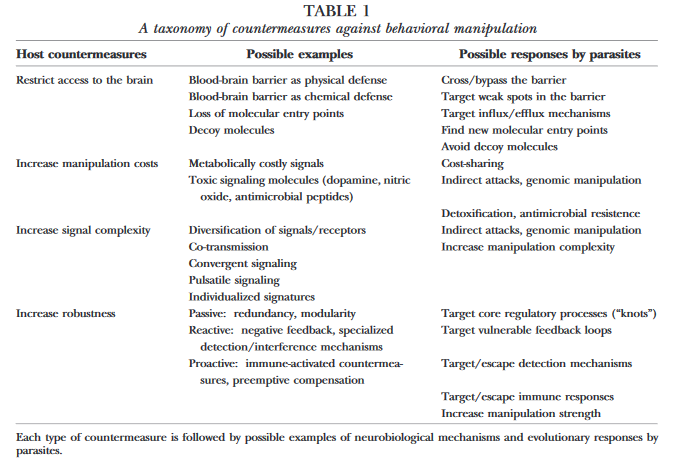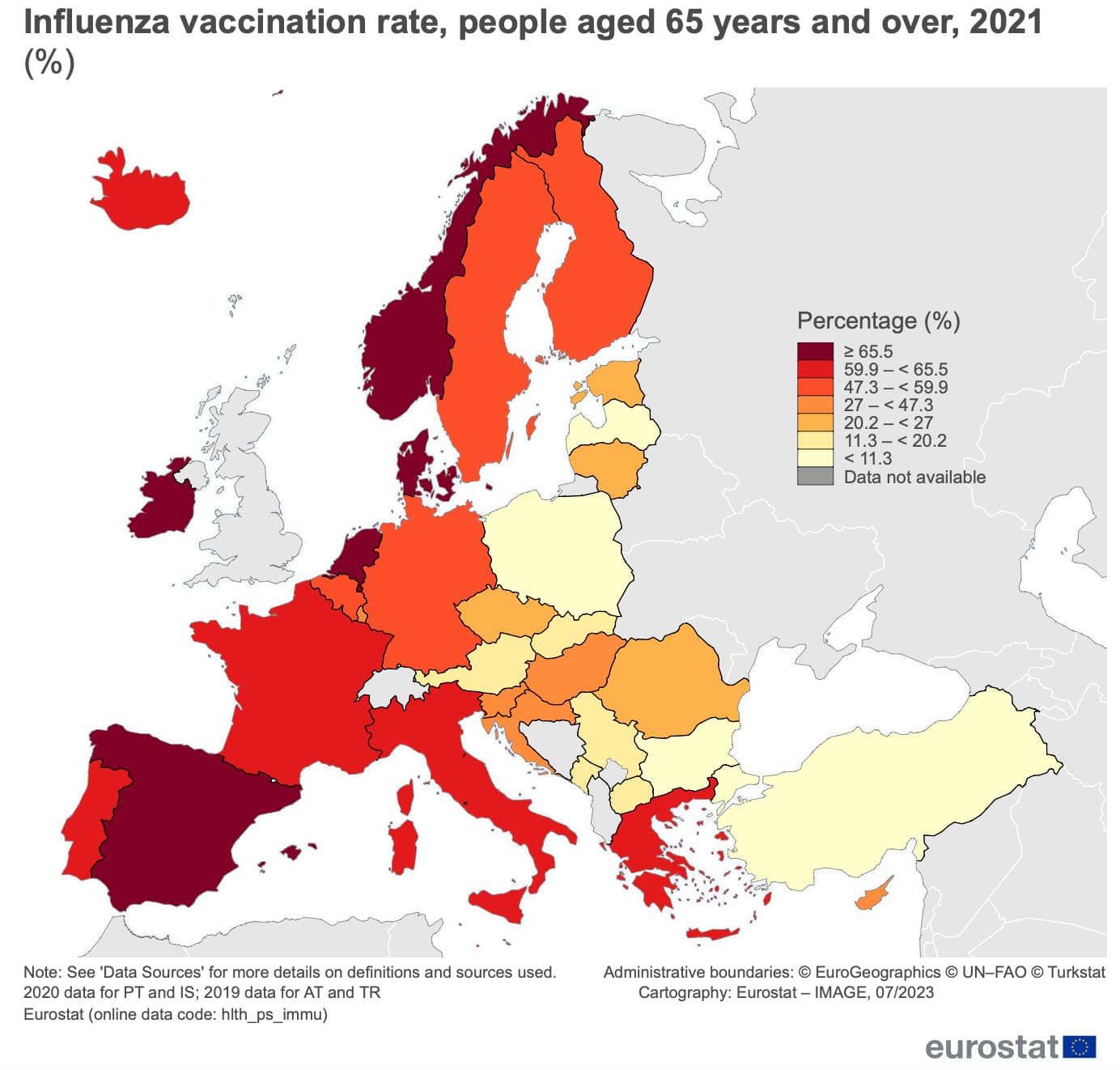Protection against TB from childhood vaccination declines over time so it seems likely other benefits would also decline.
Recent findings published in September 2023 in the peer-reviewed Journal of Alzheimer’s Disease suggest that a combination of three specific vaccines may help protect your brain down the road, too.
Paul E. Schulz, MD, senior author of the study and the Umphrey Family Professor in Neurodegenerative Diseases at McGovern Medical School, commented: “The findings suggest to us that vaccination is having a more general effect on the immune system that is reducing the risk for developing Alzheimer’s.”
In May 2022, Dr. McGovern’s team also presented research revealing that getting just one influenza vaccine could reduce Alzheimer’s risk by 40%, compared to those who didn’t get vaccinated.
To investigate further, Dr. Schulz adds about the current study: “We were wondering whether the influenza finding was specific to the flu vaccine. This data revealed that several additional adult vaccines were also associated with a reduction in the risk of Alzheimer’s.”
…
The data revealed striking insights. Individuals who received the Tdap/Td vaccine exhibited a 30% decreased risk of Alzheimer’s.
In perspective, 7.2% of the vaccinated group developed the disease, compared to 10.2% of those who weren’t vaccinated. (The researchers’ formula to arrive at the 30% difference was: Risk in unvaccinated – risk in vaccinated / risk in unvaccinated X 100%)
Similarly, those inoculated with the herpes zoster (or shingles) vaccine saw a 25% reduction in Alzheimer’s risk, with 8.1% of the vaccinated cohort developing the condition compared to 10.7% unvaccinated. The pneumococcal vaccine was associated with a 27% diminished risk. In this case, 7.92% of vaccinated patients developed Alzheimer’s, as opposed to 10.9% of their unvaccinated counterparts.
Research Paper:
The Impact of Routine Vaccinations on Alzheimer’s Disease Risk in Persons 65 Years and Older: A Claims-Based Cohort Study using Propensity Score Matching
If the research on Alzheimer’s disease prevention after Flu, Pneumonia, Herpes Zoster, and T dap/Td vaccinations is accurate, we should see a dramatic drop in Alzheimer’s disease incidence because most of the population in USA has been vaccinated.
It is likely covered by insurance, if one is over 60 or has a prescription.
It’s a little hard to track because there is a larger aging population in the U.S. and they are living longer.
Dementia is a disease that increases with age. Even so, statistics are showing a drop in rates.
“The rate of dementia has declined among older Americans. In 2021, about 6.2 million U.S. adults aged 65 or older lived with dementia. The prevalence of dementia decreased by 3.2 percentage points among men and 3.9 percentage points among women.”
BTW I decided to have Herpes Zoster vaccination after learning about a possible protection against Alzheimer’s disease and also seeing a very bad course of the illness in Dianne Feinstein.
Now I will have to have all other possible vaccinations! Ha, Ha.
Given that half the US population seem to be anti-vaxers, with only 51% getting annual flu shots, that alone might explain the high incidence of Dementia in USA compared to Europe.
It will be interesting to compare the rate of Alzheimer’s disease in San Francisco, Marin County, other Bay Area counties where everyone is vaccinated against everything with the states/counties with low vaccination rate. Probably many confounding factors will interfere with the study : level of education, type of diet, frequency of exercising and so on.
Yes the risk-reward is fantastic for these vaccinations.
One level up there’s also taking Valaciclovir prophylatically to prevent herpesvirus family infection. And checking oral microbiome and gut microbiome for bacteria/viruses that are associated with higher levels of alzheimer’s disease. I would also make sure to not have any bleeding gums, good in general but seems like bad bacteria could use it to get into the blood stream?
In EU we don’t do recommendations for the flu shot for everyone, only people 65 and above in chronological age or similar, so very few take them I think. I have never had a flu shot, but I will be getting my first one after this evidence.
In fact it is recommended for everyone over 9 years old. It is just highly recommended for older, frail, immunocompromised etc. I get it almost every year. But there is a clear division in EU where people vaccinate and where there are sceptic. Would be fun to check dementia map.
My wife and I just got our annual flu shot today on the NHS. Early 'cos we’re off next week to Barcelona for 2 weeks, then on a cruise ship back to Florida. Will be exposed to lots of people…
Do you have a source for this?
Yes, national guidelines.
I must correct myself on the above, it is recommended for everyone even for younger children that need two doses. Below it is google translation of the part with recommendations.
Although vaccination against influenza is recommended for all residents who want to protect themselves and their loved ones from the disease, vaccination is especially recommended for groups with a higher risk of a severe course of the disease. Influenza vaccination is especially recommended:
- over 65 years old,
- chronic patients and their family members,
- persons who have a marked increase in body weight (BMI ≥ 40; in children, BMI ≥ 95 percentile for age and sex),
- small children (from 6 to 23 months of age) and their family members,
- pregnant women and their family members,
- healthcare workers and colleagues and employees in homes for the elderly who are exposed to the risk of infection during their work or who may transmit the infection to other people during their work,
- to other workers in essential services that are important for the operation of various activities.
It’s different for different countries in EU, but it is does not look like a strong recommendation to me.
Lots of reasons for not getting the flu shot. I wouldn’t lump them into the anti-vaxxer camp. Just as I wouldn’t lump the non covid vaxxed into the anti-vaxxer camp. True anti vaxxers like Kennedy are a different group.
Good point. Also vaxxing only seems to reduce Dementia 30%, so it is not the whole story, given that India and Japan both have the lowest dementia rates in the world, both over 90% below USA, and these 2 countries have very different culture & economic development levels.
The only thing India and Japan have in common is very high exposure to live bacteria : In India this is due to lack of ability to wash after bathroom use in much of India, so the population probably regularly infect each other with their gut biome! In Japan the cuisine is full of dishes laced with various bacteria (some deliberate, some not), like Natto, Kimchi, raw fish & beef. Even though Yoghurt is not native to Japanese cuisine, they seem to sell more Yoghurt with specialized strains (like BB-12) than are available in USA or Europe. This suggests that the key is regular exercise for the immune system by exposure to actual infections (with regular vaccination, providing a less effective level of immune excercise), in order for the immune system to regulate its response level appropriately. Without any exposure to bacteria and/or viruses, the immune system seems to drift into becoming more and more sensitive to any possible infection until it triggers auto-immune type behavior. Alzheimer’s beta-Amyloid plaques are identical to those found in the pancreases of Type-1 and Type-2 diabetics, which are known to be a response to viral infections that trigger the immune system to wall off the infected areas (close to 100% in type-1 diabetics and just partially in Type-2 diabetics). So Alzheimer’s may be caused by the immune system overreacting to a non-existent brain viral infection, which would be avoided by regularly exercising the immune system. Other types of Dementia are linked to sick gut biome’s.
European cuisine used to have a lot more dishes with live bacterial cultures, but other than Yoghurt and cheese, they seem to have gone out of fashion in the last 100 years or replaced with sterile versions : dill pickles (cucumbers) and sauerkraut both used to have live cultures, but now use sterile vinegar instead. Until Indian spices showed up 300 years ago, live bacterial cultures were the leading source of flavor in food in Europe and Japan.
Influenza vaccination is only one of several suggested as reducing the rate of Alzheimer’s disease.
I wouldn’t be so sure the mechanism of action would be preventing beta-amyloid plaques, as far as I’ve learned previously studies drugs that work based on that mechanism doesn’t work very well for Alzheimer’s disease.
It might simply be that the viruses/bacteria somehow get into the brain and wreck havoc. The bacteria in the mouth and nose is close to the brain. And the brain seems to be an important target as it can influence the behavior of the host for example spreading.
For example there is a parasite, Toxoplasma gondii in cats which can be transmitted to humans which increase the risk of schizophrenia. Toxoplasma gondii - Wikipedia
There seems to have been a lot of selection pressure to protect the brain from viruses/bacteria in the past as many neurotransmitters are anti-microbial, which could be to prevent a bacterium from influencing the behavior of the host (i.e if you produce neurotransmitters as a bacterium, you die), see this:
Or see the paper this article is based on:
INVISIBLE DESIGNERS: BRAIN EVOLUTION THROUGH THE LENS OF PARASITE MANIPULATION
Table of possible evolutionary countermeasure to behavioral manipulation:

All in all I think that the damage isn’t cause by auto-immunity but by the viruses/bacteria themselves right now because there seems to have been evolved ‘countermeasures’ to behavioral modification etc which suggest that it’s been a problem in a past and therefore might still be. It just takes time to cause the ‘Alzheimer’s’ behavior as our defenses has improved so much, I don’t know why it would be evolutionary advantageous for the bacteria/virus to cause alzheimer’s though, it might be a side effect from some other behavior that it’s causing in chronologically younger hosts. Or they might not modify behavior at all but just want to spread in the brain or nearby tissues which influence it.
I believe sterile inflammation theory as part of hyper function as proposed by MB and what @tananth wrote above makes more sense. Especially in view that down regulating mTOR extends life and at the same time calms down overreactive immune system and has shown great deal of success in treating auto immune diseases. As inflammation is central process of Alzheimer’s I would be more inclined towards autoimmunity. But yes microbial burden must play a role. Living in sterile conditions doesn’t make your immune system better it makes it dysfunctional or non functioning. Just look at allergies, babies exposed to dirt, germs have lower risk of developing allergies and asthma.
If we apply occam’s razor to this, I think the simple explanation that the viruses simply cause damage directly seems to make most sense to me. There’s a lot of convincing and conditionals required for any other hypothesis IMO.
I found this suggesting herpes simplex virus type 1 (HSV-1) could cause Alzheimer’s disease.
My first thought is that anti-virals could help with this, as a prophylactic although most of us are infected, might help anyway. The anti-viral I mentioned earlier targets the herpes family of viruses, though I haven’t looked how well for HSV-1.
